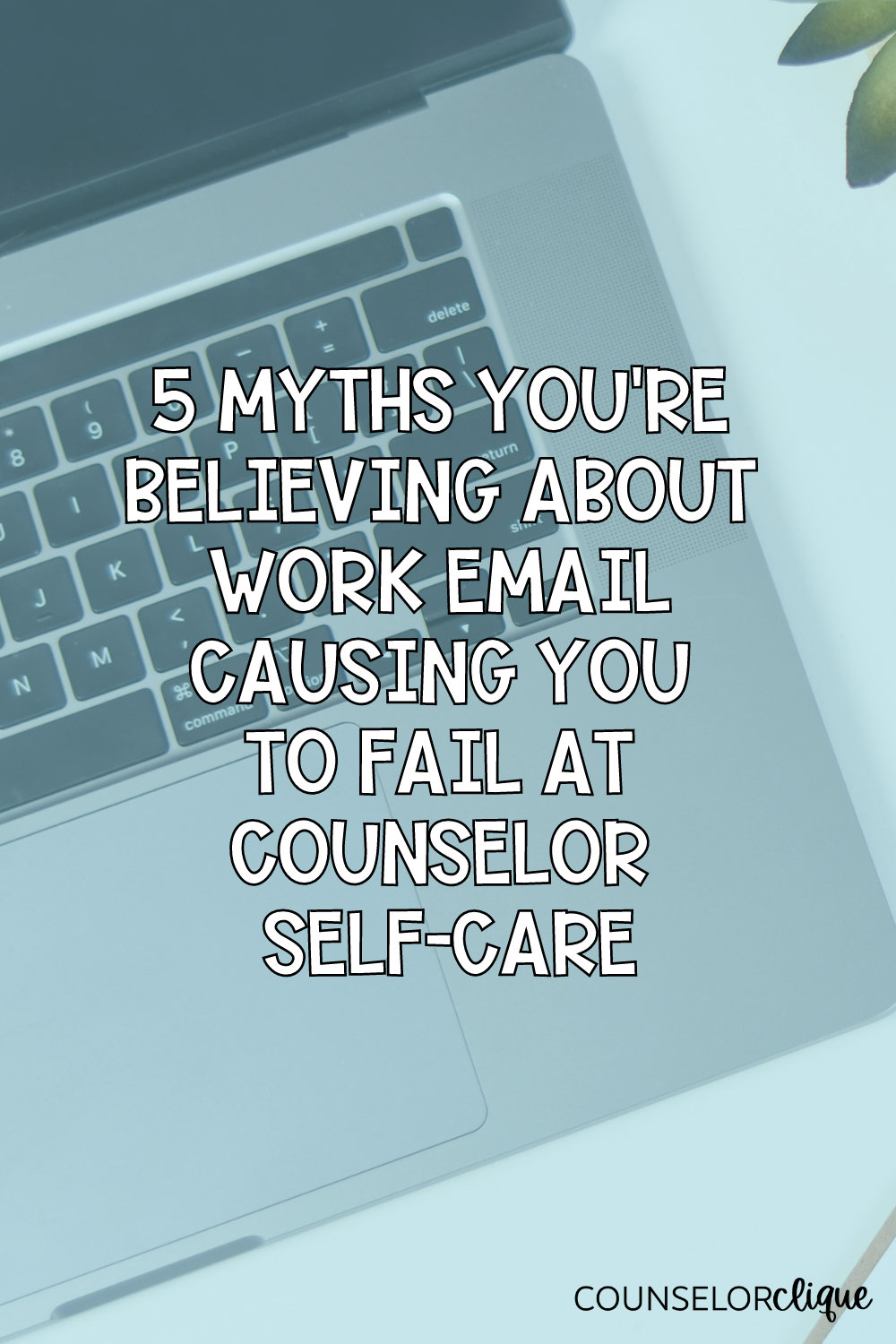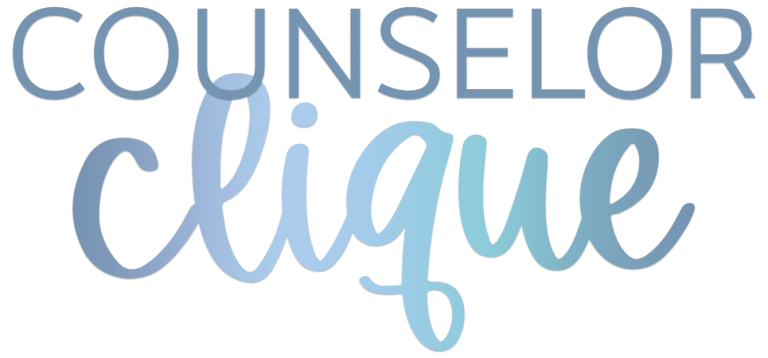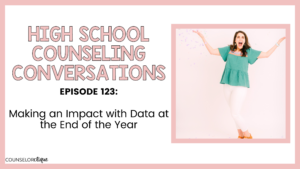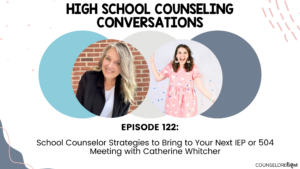Let’s address the elephant in the room. School counselors are natural helpers. Not checking email at home is actually counselor self-care! My biggest argument for not checking email during off-time is for YOUR own sanity and mental health. Disconnecting is hard, and it goes against our grain to turn our backs on our students and families even when we’re not AT work.
I, personally, took work email off of my phone about 2 years into being a school counselor, and I’ve never looked back. We are the ones teaching our students that they need to care for themselves before they can care for others. School counselors tell each other to fill their own buckets, so they can fill others’ buckets. We need to practice what we preach and take care of ourselves emotionally and mentally, and this includes “leaving work at work.”
I don’t know about you, but I am on the same contract time as teachers. I am not contracted to work in the summer. If I do not take a break for myself in the summer, I don’t get emotionally recharged, and it’s like the school year never ends!
Here are 5 myths you’re believing about work email causing you to fail at counselor self-care.
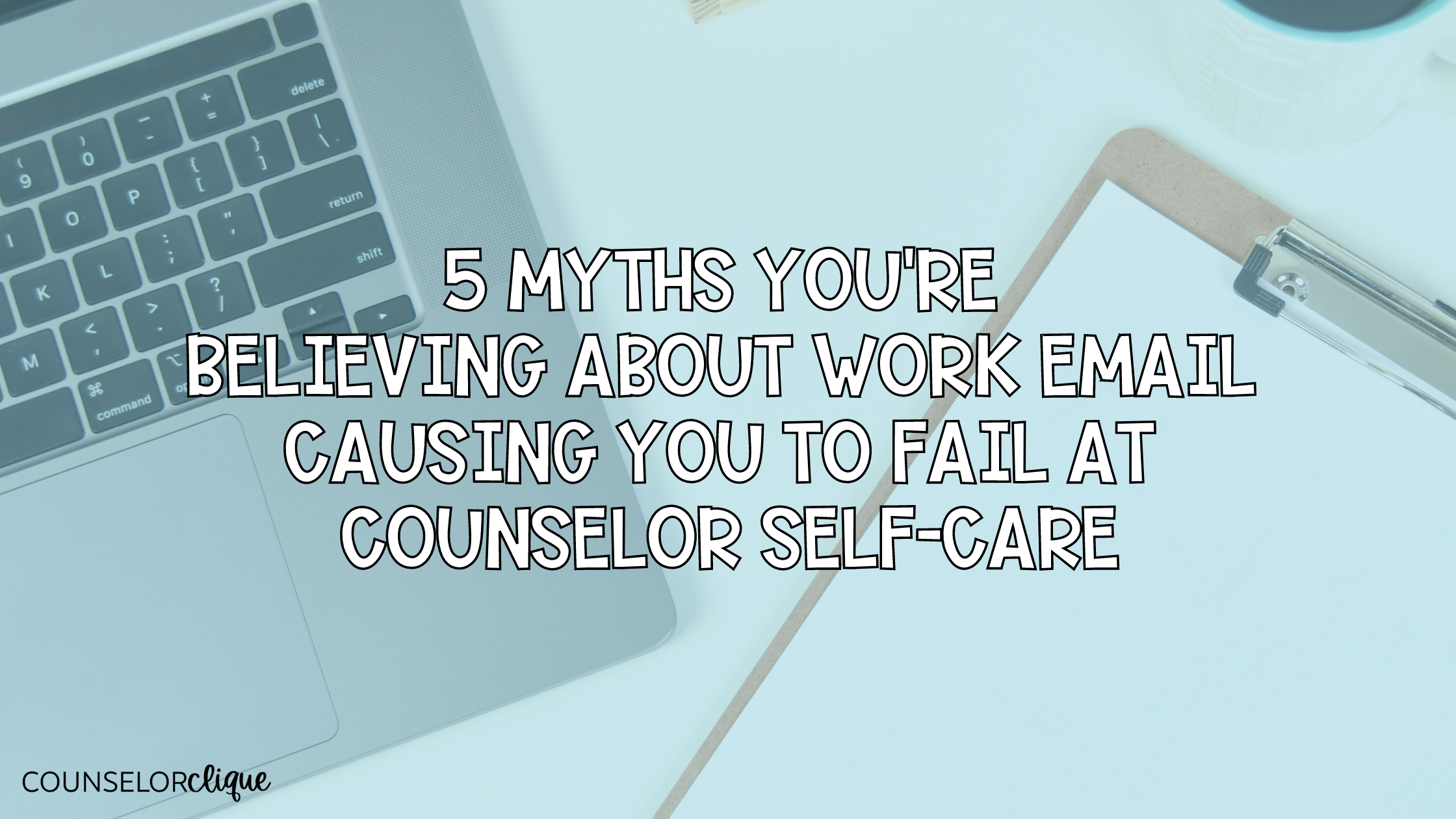
Counselor Self-Care Myth #1- “What if my families can’t get the information they need when they need it?”
Does your eye start to twitch just at the thought of NOT checking work email? Are you worried about how students and parents will adjust without you? Well… how did they do it before you? I think it’s prideful to think you are their only lifeline.
Keep your resources and website up-to-date. Educate your families on where to get community resources and other information. If they can expect to find timely information in the same place, you can offload a lot of the same questions by directing them to where they can find the answers themselves. Students should practice this regularly as it is vital to their independence!
Your counselor self-care can be an example that you’re setting for your students!
Counselor Self-Care Myth #2– “A student might have a deadline coming up, so I need to be available.”
As you let students and parents know you are not available outside of work hours, they start understanding and respecting boundaries. When I talk to juniors and seniors about letters of recommendation, I stress the importance of not waiting until the last minute. (What happens if I’m out sick or on vacation on Friday before your letter is due on Saturday? I’m sorry- I can’t write that letter for you.)
Sometimes students need to make mistakes and miss deadlines before they know how serious you are. It sounds harsh, but sticking to your boundaries will teach everyone that you are respecting yourself and your family. It will also train them to plan ahead and be resourceful on their own when needed.
Counselor Self-Care Myth #3– “I’ll just sneak a peek at my email so that I know what I’m stepping into in the morning.”
I would also go as far as to argue not even PEEKING at your email even if “I’m not going to respond… I’m just going to check, so I know what I am walking into on Monday morning.” This has caused my stress about the volume of emails I have awaiting me and anxiety about a parent email that is awaiting my response. My mind ends up racing at night about all that is to come the next day!
Counselor Self-Care Myth #4– “What if my administrators expect me to answer emails at all hours?”
How do your administrators handle your established boundaries for your own counselor self-care? This (oftentimes) requires teaching and conditioning. Our administrators have district phones, and they work more evening hours with sports and other events than we do. Their hours are often blurred (or they’re getting PAID for those hours), and I think it’s easy for them to rope us in with any after-hours issues.
Some things you could consider having a conversation with your administrator(s) about:
- what constitutes an emergency and what does not (student death, direct communication from someone higher up than principal that MUST be specifically communicated to counselor in the most timely manner and requires action immediately)
- healthy boundaries to prevent emotional burnout (if I want to stay in this job for the long-term, I have to have boundaries)
- my family needs my energy outside of school
- not having a district phone (and, even if I did… I would have to have clear boundaries on expectations and work hours)
- BE FIRM- this may take some practice both rehearsing what you may say in this conversation and some practice for your admin to understand this as your norm especially if it is not the norm already
Counselor Self-Care Myth #5– “This is so hard. I could never do it.”
Checking your email ONLY at work takes practice, practice, practice. Many counselors have told me it has taken them years to get better at this and to finally feel comfortable with it. (Especially once we’ve added in eLearning/distance learning/digital learning, the need to practice this comes with extra necessity. Otherwise, we will be CONSTANTLY connected, and we will never be able to completely tune out or turn work off.)
If you work with a team of counselors, encourage your department to join in this endeavor with you! Of course, you can’t change everyone. It’s up to them to decide how they spend their time outside of the office, but I do think it’s helpful if everyone can be on a similar page.
I do not put up an away message every night or weekend. I do put an away message up in the summer, but it is very simple. This is one practical and personal way I have adding in some counselor self-care during my time off in the summer.
You could try something like: “Thank you for reaching out. I will be answering emails and voicemails periodically over the summer when I am in the office. Please check our school counseling website for the answers to many of your questions (link to the website). If this is an emergency, please call 911 immediately. I look forward to working with you when I am back in the office in August. Have a great summer!”
Consider the Legalities and Ethical Issues of “Around-the-Clock Availability”
Not only is counselor self-care a major issue, but there are legalities and ethical issues associated with checking your work email outside of work. That’s why I loved this article from Dr. Carolyn Stone (2016) called Legal and Ethical Technology Imperatives that discusses the importance of not blurring your work and school hours. What happens when someone reaches out to you with a safety concern? Dr. Stone says, legally, it is best practice to not have a pattern of “around-the-clock availability.”
Things you might have to consider depending on the circumstance:
- you have seen an email/report/text and ethically have to act on it and get help
- you are out of town and not able to respond appropriately or in a timely manner
- you are making contact from your own personal phone line
- you may be somewhere with spotty to no internet
- you may not have access to the student or parents’ contact information
- student has a safety concern but you know family history and the immediate family may not be the best ones to address this concern
I’d love to hear your thoughts on work/home life boundaries. How have you established them? Have you been successful in adhering to them? If your lines between work and home are blurred, how do you manage your own counselor self-care?
Download this free Self-Care Goal Sheet, and set a self-care goal in six different categories! We discussed counselor self-care inside the Clique Collaborative as one of our monthly topics! Join the waitlist for my monthly membership for high school counselors to hear about when doors open next!
